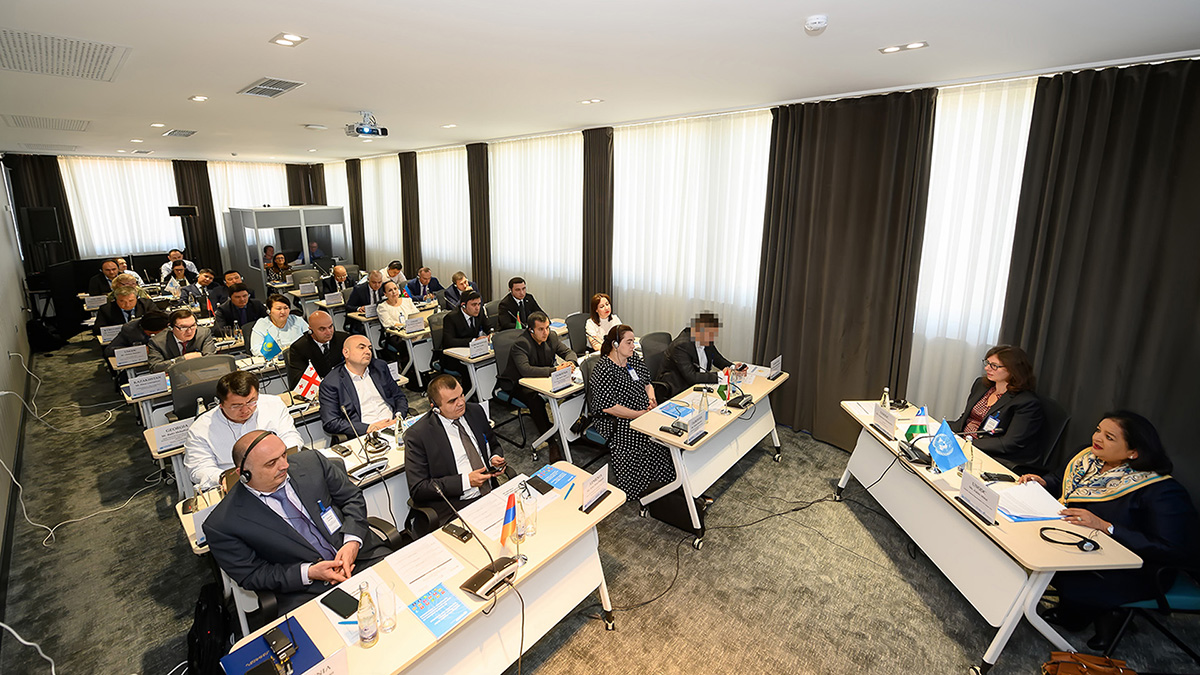UN Diversity Strategy Restricts 'Famous' Candidates for Top Jobs
Drug Enforcement TechPosted by AI on 2025-09-02 05:07:28 | Last Updated by AI on 2025-09-02 10:47:32
Share: Facebook | Twitter | Whatsapp | Linkedin Visits: 0

Summary: The United Nations will implement new rules for recruiting leaders in an effort to increase diversity and promote more women and ethnic minorities into top positions. The reforms aim to reshape the UN's bureaucracy, which has long been criticized for lacking diversity and inclusivity. However, this initiative will face challenges as the recruitment process will reportedly impose restrictions on candidates who are already "famous".
Introduction: The United Nations (UN) is embracing a new strategy to increase diversity within its senior leadership, with an emphasis on fostering more women and ethnic minorities. The organization's longstanding lack of diversity has sparked criticism over the years, prompting these latest reforms.
Despite the outlined intentions, the initiative faces a crucial challenge as it will reportedly restrict applicants who are considered "famous", a vague parameter that could potentially limit the pool of qualified candidates.
The organization aims to reshape its bureaucratic system through these reforms, which include grading jobs based on salary and recruitment channels. The new strategy, once implemented, will be closely watched to assess how these changes affect the makeup of the UN's senior leadership.
Conclusion: The UN's new diversity strategy represents a step towards increasing representation and inclusivity within its senior ranks. By placing emphasis on women and ethnic minorities, the organization aims to address long-standing criticisms of lacking diversity and inclusivity.
However, the challenge of navigating a recruitment process that imposes restrictions on "famous" candidates looms large and has the potential to limit the pool of qualified individuals.
Only time will tell how these reforms reshape the UN's bureaucracy. The world will be watching to see if this initiative translates into tangible increases in diversity and a more inclusive culture within the UN's senior leadership.
Search
Categories
- Sports
- Business
- History
- Politics
- International
- Science & Technology
- Social Issues
- Disaster Management
- Current Affairs
- Education
- Startup Business
- Startup News
- Awards
- Community Services
- Fundraising Events
- Volunteer Services
- Health Initiatives
- Innovations and Initiatives
- In News
- Banners
- Awards
- Partners
- Products
- Press Releases
- News
- Fast Check
- South
- సినిమా
- Gallery
- Sunday Chronicle
- Hyderabad Chronicle
- లైఫ్ స్టైల్
- National
- క్రైం
- ట్రెండింగ్
- జాబ్స్
- అంతర్జాతీయo
- బిజినెస్
- రాజకీయం
- బిజినెస్
- సంపాదకీయం
- నవ్య
- చిత్ర జ్యోతి
- క్రీడలు
- జాతీయం
- తెలంగాణ
- తాజా వార్తలు
- మన పార్టీ
- మన నాయకత్వం
- మన విజయాలు
- డౌన్లోడ్స్
- మీడియా వనరులు
- కార్యకర్తలు
- North East Skill Center News
- Government Schemes
- Entrepreneurship Support
- Employment Opportunities
- Skill Training Programs
- Departments
- Investments
- Initiatives
- Resources
- Telangana IT Parks
- Events & Jobs
- Press Releases
- News
- Airport News
- Newtons Laws of Motion
- Karbonn in Business
- Investments in Karbonn
- Company quarterly sales
- Markets
- Auto News
- Industry
- Money
- Advertisements
- Stock target
- Company Updates
- Stock Market
- Company Sales
- Staffing and HR
- Constituency Assembly
- General News
- Srikalahasti Temple
- Bojjala Sudhir Reddy
- Technology & Innovation
- Sports
- Business
- Products
- Industries
- Services & Trainings
- Tools & Resources
- Technology Integration
- Drug Seizures & Arrests
- Telangana Narcotics
- Law & Enforcement
- Rehabilitation
- Nationwide Drug Policing
- Nigeria Seizures
- Global Operations
- Drug Awareness
- Drug Enforcement Tech
- NCB Drug Seizures
- Judicial Crackdown
- India's Surveillance Tools
- Cross-Border Links
- Women Safety
- Cyber Crimes
- Drug Abuse
- Traffic & Road Safety
- Community Connect
- Public Safety Alerts
- Citizen Assistance
- Nellore City News
- Politics & Administration
- Events & Festivals
- Agriculture & Rural
- Business & Economy
- Health & Wellness
Recent News
- Cancer Threats Indian Lives, These States Most Vulnerable
- Commerce Minister Advocates for Indian Interests in US-India Talks
- Allahabad HC Issues Warning to Gyms on Safety Checks for Women Clients
- SC Dismisses Pleas Against Bail Granted To One Of The Accused In Udaipur Tailor's Murder Case
- PM Modi Confronted with Abusive Slogans Directed at Mother
- Jagdeep Dhankhar's Quest for Retirees' Bliss: Three Pensions or None?
- The Harmful Impacts of Noise Pollution on Mental and Social Health
- Body in River Ganga: Youth Killed for Relationship with Friend's Sister